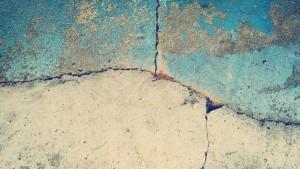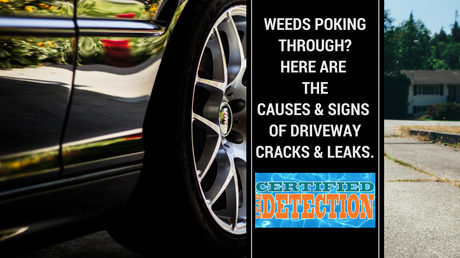Signs of a Driveway or Slab Leak – What You Need to Know
Slab leaks – wherever they occur in your Central Florida home, or on your property – never stop on their own. A leaky faucet can result in a higher water bill (and wasted resources), but other types of leaks can also cause severe damage if left undetected or unrepaired. Case in point: driveway and slab leaks.
Causes & Signs of Driveway Leaks
Driveway leaks are typically caused by a leaking or broken water main. According to conservative estimates, the average life of a water main is around 50 years. Low-quality pipes, damaged pipes or improper installation can cause premature failure, but leaks typically start due to the age of the pipe and other climate conditions. The leak may not directly start from the pipe, but from the fittings, as these have a reduced lifespan.
Some of the signs of a driveway leak are: frequent accumulation of water on the driveway, the sound of running water and loss of water pressure. You should also keep an eye on cracks appearing in the driveway, mold or excessive grass growth in one area, a constantly running water meter and an increasing water bill.
Causes & Signs of Slab Leaks
A slab leak is a big problem for any homeowner. It can increase your water bill and cause extensive water damage. Also, if neglected over the long term, a slab leak can even flood your home. Even if there is no overt flooding, the constantly damp environment provides an ideal breeding ground for mold – a serious health hazard.

Slab leaks occurs mainly due to a fault in the underlying foundation piping. There is a network of pipes under your foundation, which eventually either deteriorates or bursts. The older your house, the greater the chances of a pipe failure.
Water pressure is another common cause. High water pressure can be caused by poor construction techniques, earth movement and shifting or other reasons. Friction is also a very common cause of slab leaks, as pipes rubbing against concrete can wear down over time. Eventually, a small or large leak can develop, or the entire pipe may rupture.
It is important to recognize the signs of a slab leak so you get help at the right time, before damage becomes worse – necessitating even more extensive and expensive repair.
A damp spot on the floor – This is one of the most common signs of a slab leak. If you ignore it, the spot will spread. However, if the leak is near your kitchen, bathroom or laundry room, call a plumber to eliminate fixture or appliance pipes in these areas as the source.
A drop in water pressure – Because slab leaks occur in the main water line, the water pressure in your house will decrease.
Hot floors – A hot spot in the floor could indicate a leak in the hot water line. The hot water heats up the concrete, which in turn causes the floor to become hot. If you find that a patch of floor in your house is warmer than others, call a professional leak detection company immediately.
A crack in the floor – This is a major indicator of a slab leak. If you have a crack in the floor, and see water oozing from it, call a professional leak detection company immediately.
Other signs of trouble include the sound of running water indoors, high water bills and a constantly running water meter.
What To Do If Your Driveway is Leaking
Whether it is a driveway leak or slab leak, one thing that you should remember is both these leaks are neither easy to detect nor simple to repair. The best way to tackle a slab leak problem is to leave it to a professional leak detection company. You should not try to repair the leak on your own, as it can do more harm than good. The sooner you recognize evidence of a slab leak, the sooner you can have it repaired.
Certified Leak Detection has been in the business of leak detection and repair for over 30 years, so we know what it takes to repair your driveway or slab leak. Contact us if you suspect a problem.


